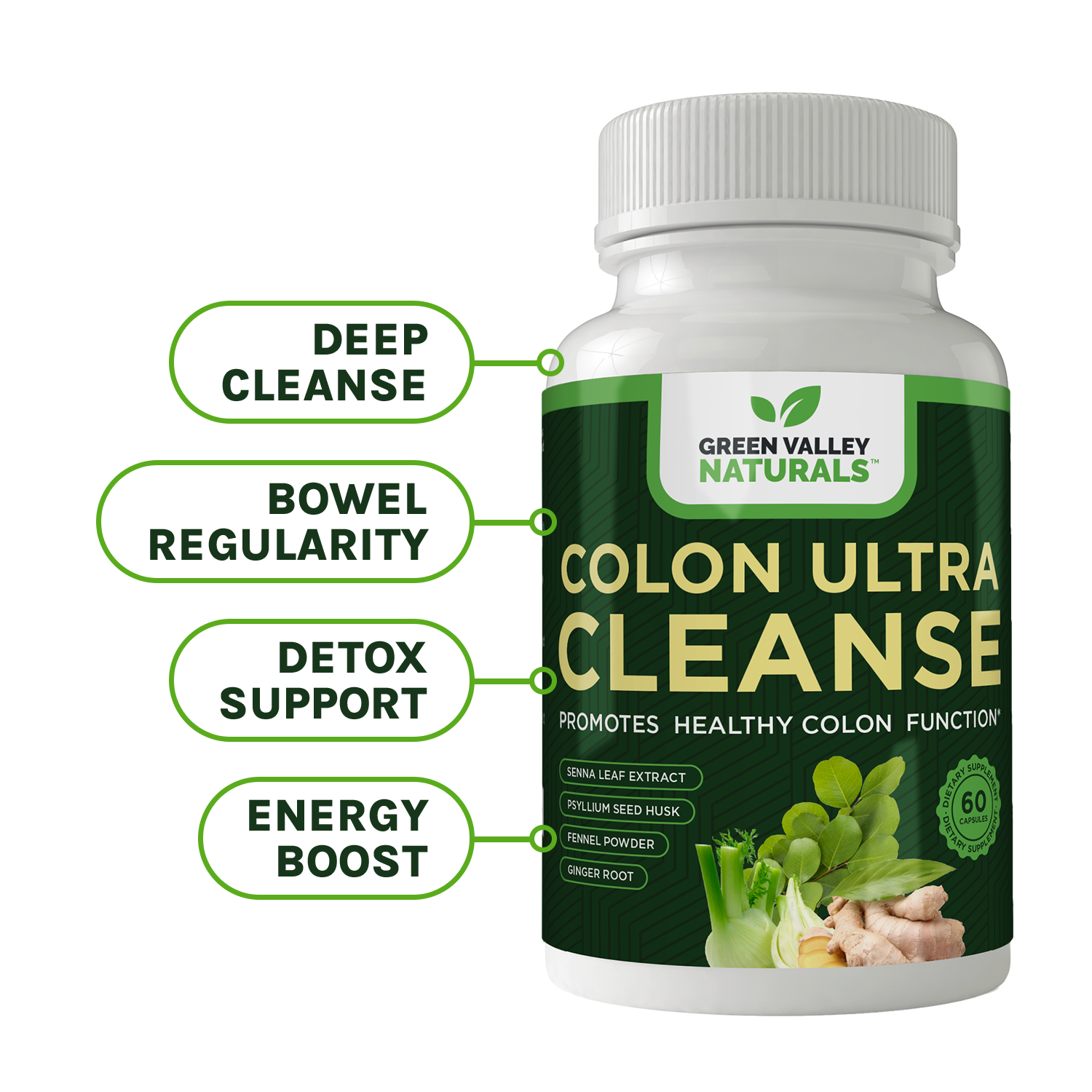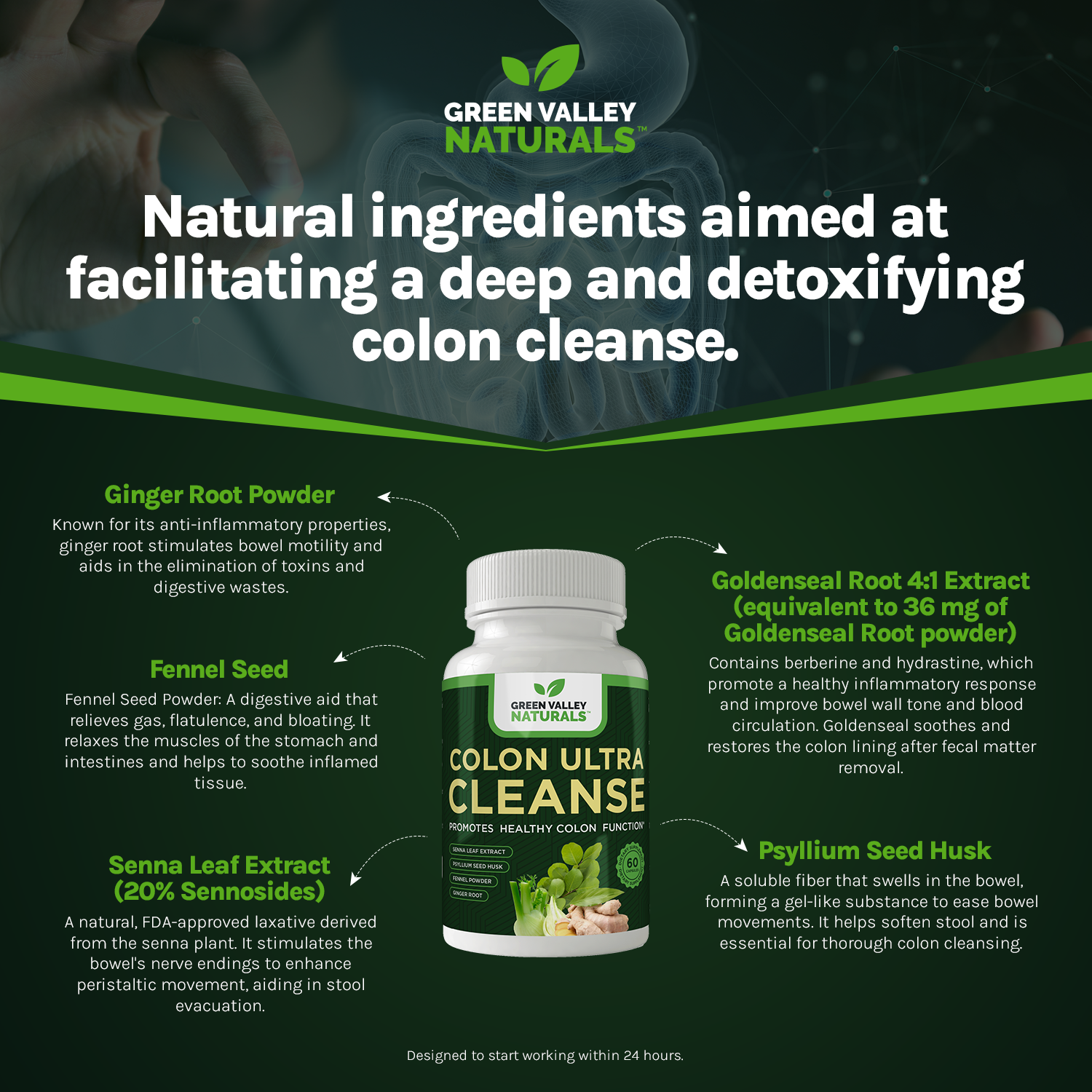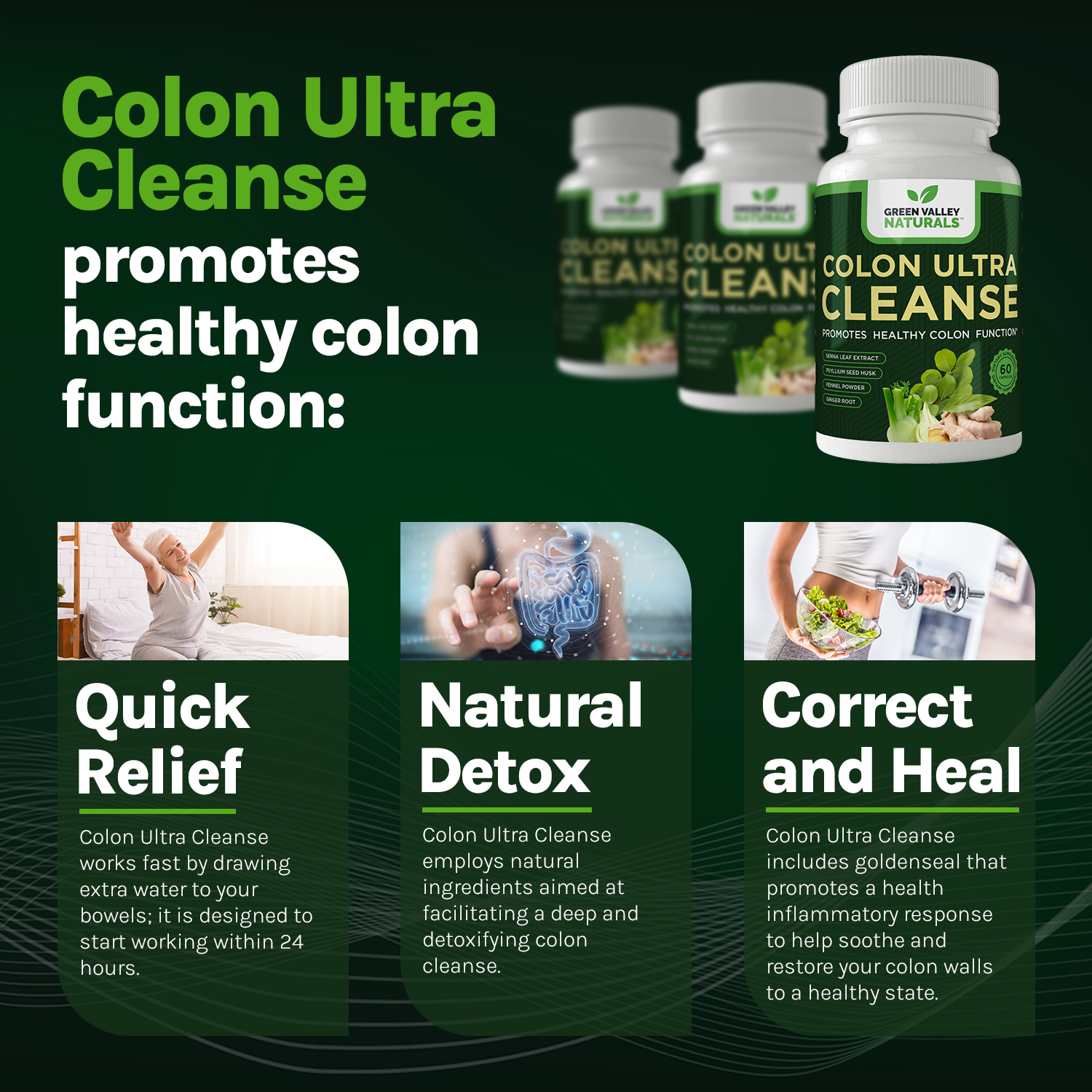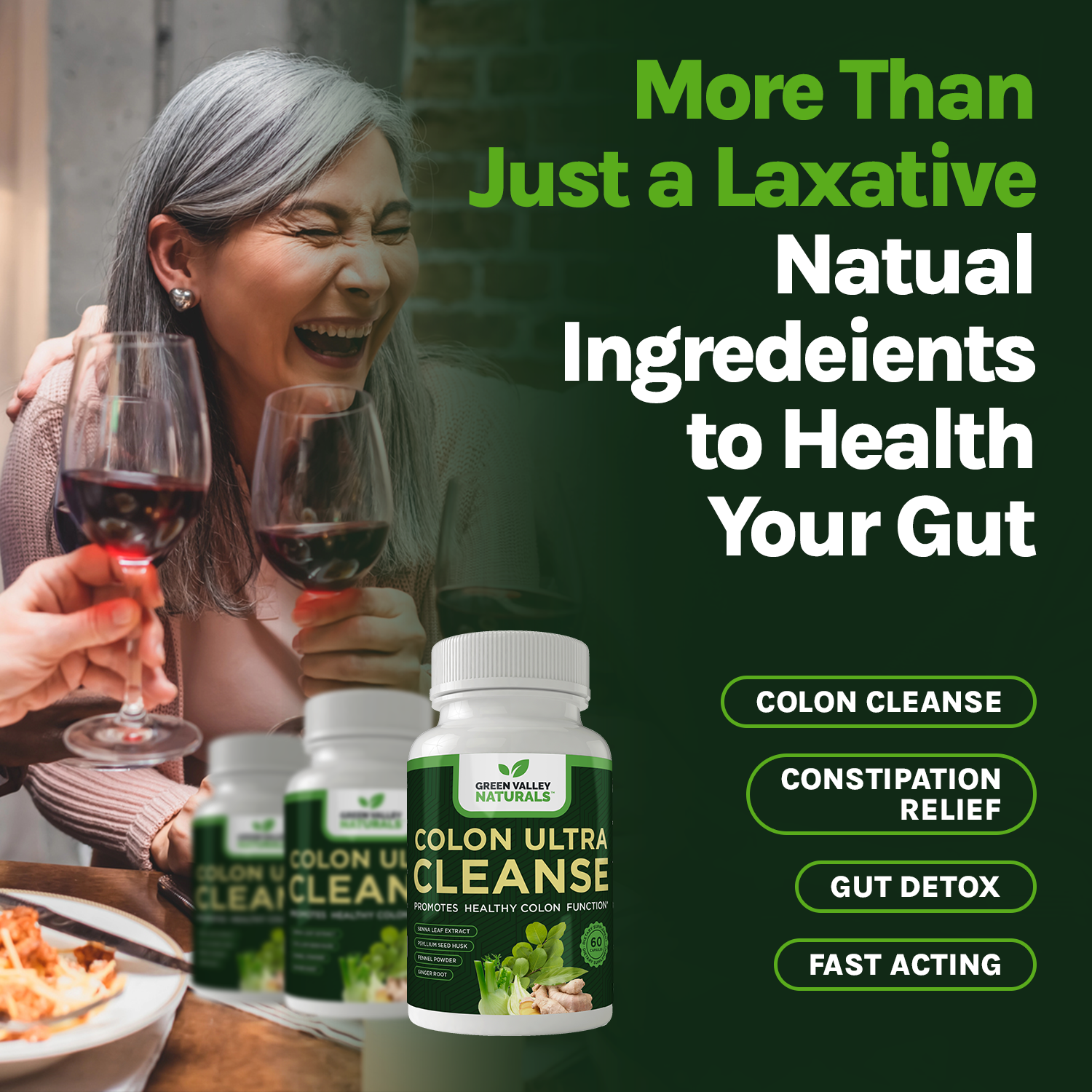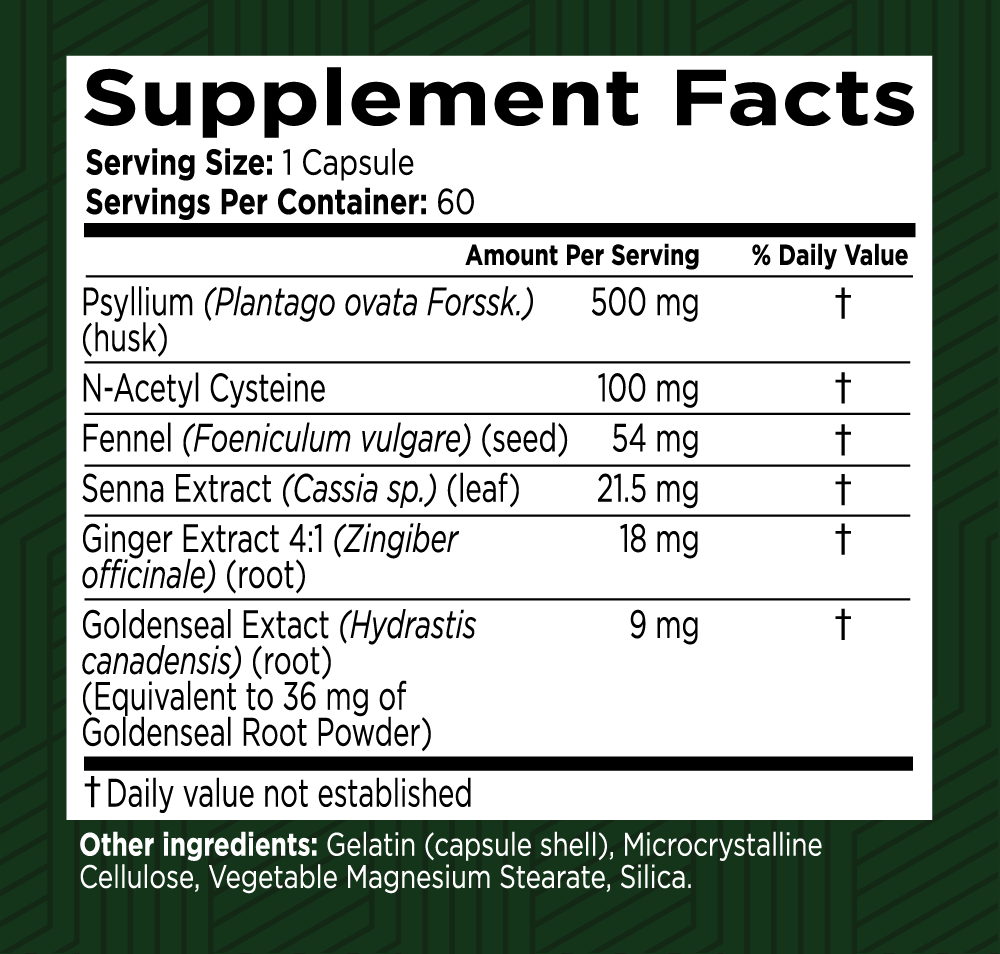Colon Ultra Cleanse
Promotes Healthy Colon Function...
Medically reviewed by Dr. Patrick James Baggot
Key Ingredients
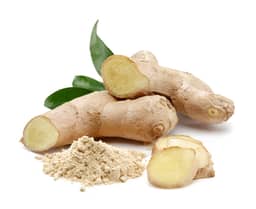
Ginger Root Powder
Known for its anti-inflammatory properties, ginger root stimulates bowel motility and aids in the elimination of toxins and digestive wastes.
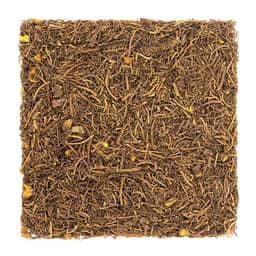
Goldenseal Root 4:1 Extract (equivalent to 36 mg of Goldenseal Root powder)
Contains berberine and hydrastine, which promote a healthy inflammatory response and improve bowel wall tone and blood circulation. Goldenseal soothes and restores the colon lining after fecal matter removal.
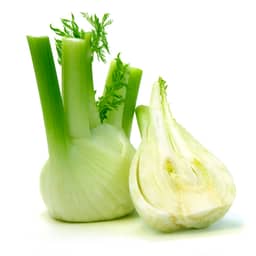
Fennel seed
A digestive aid that relieves gas, flatulence, and bloating. It relaxes the muscles of the stomach and intestines and helps to soothe inflamed tissue.
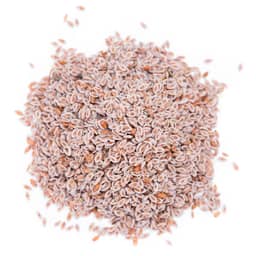
Psyllium Seed Husk
A soluble fiber that swells in the bowel, forming a gel-like substance to ease bowel movements. It helps soften stool and is essential for thorough colon cleansing.

Senna leaf extract (20% sennosides)
A natural, FDA-approved laxative derived from the senna plant. It stimulates the bowel's nerve endings to enhance peristaltic movement, aiding in stool evacuation.
Frequently Asked Questions
Your health is our top priority
Here at Green Valley, we only work with US-based manufacturing facilities that are cGMP (Good Manufacturing Practices) compliant and FDA inspected.
Our products are triple tested by our manufacturers to ensure potency and purity and are stored in our temperature and humidity-controlled warehouse right here in the Shenandoah Valley, Virginia. And we ship directly to your doorstep – we don’t share warehouse space and we don’t hand off your business to a third party to fulfill your order.
Best of all, all Green Valley products come with our 90-day Satisfaction Guarantee. If you are unhappy with the product for any reason, simply call or email our customer support team and return the unused portion of the product within 90 days of your order. We’ll refund every penny of your purchase (less shipping), no questions asked!

Colon Ultra Cleanse Customer Reviews
Due to the types of medications I take
Due to the types of medications I take... which are responsible for the problems in large part , of slowing down and impairing digestive movement, causes the need for taking something as thorough as Colon Ultra Cleanse. This product has saved my life! Unfortunately I must take six capsules daily. But it works wonderfully!
Green Valley offers many excellent products at reasonable prices
Green Valley offers many excellent products at reasonable prices. I have been ordering products from them for a few years. Excellent communication, fast shipping, a great company to do business with!
The product that I use is very effective
The product that I use is very effective. The customer service staff has been consistently helpful and professional.
